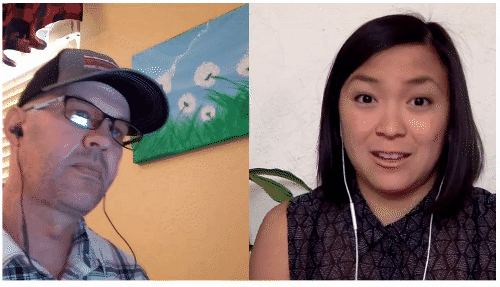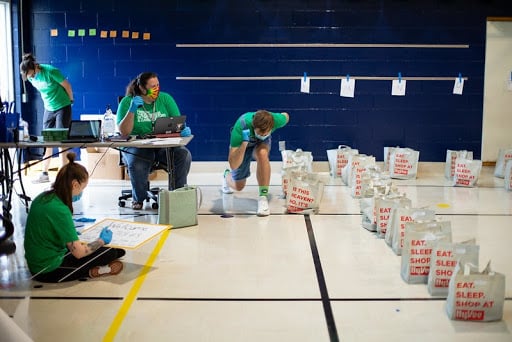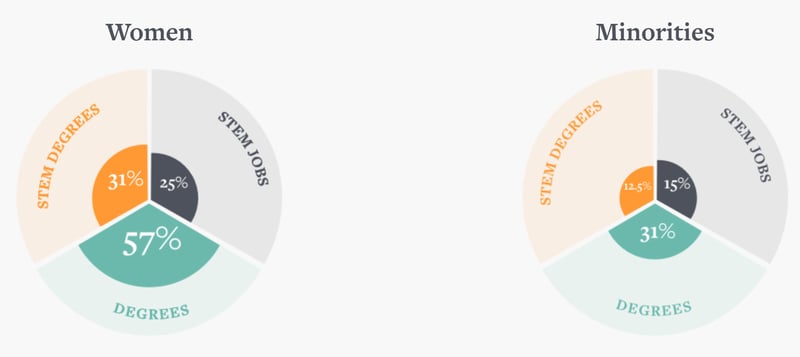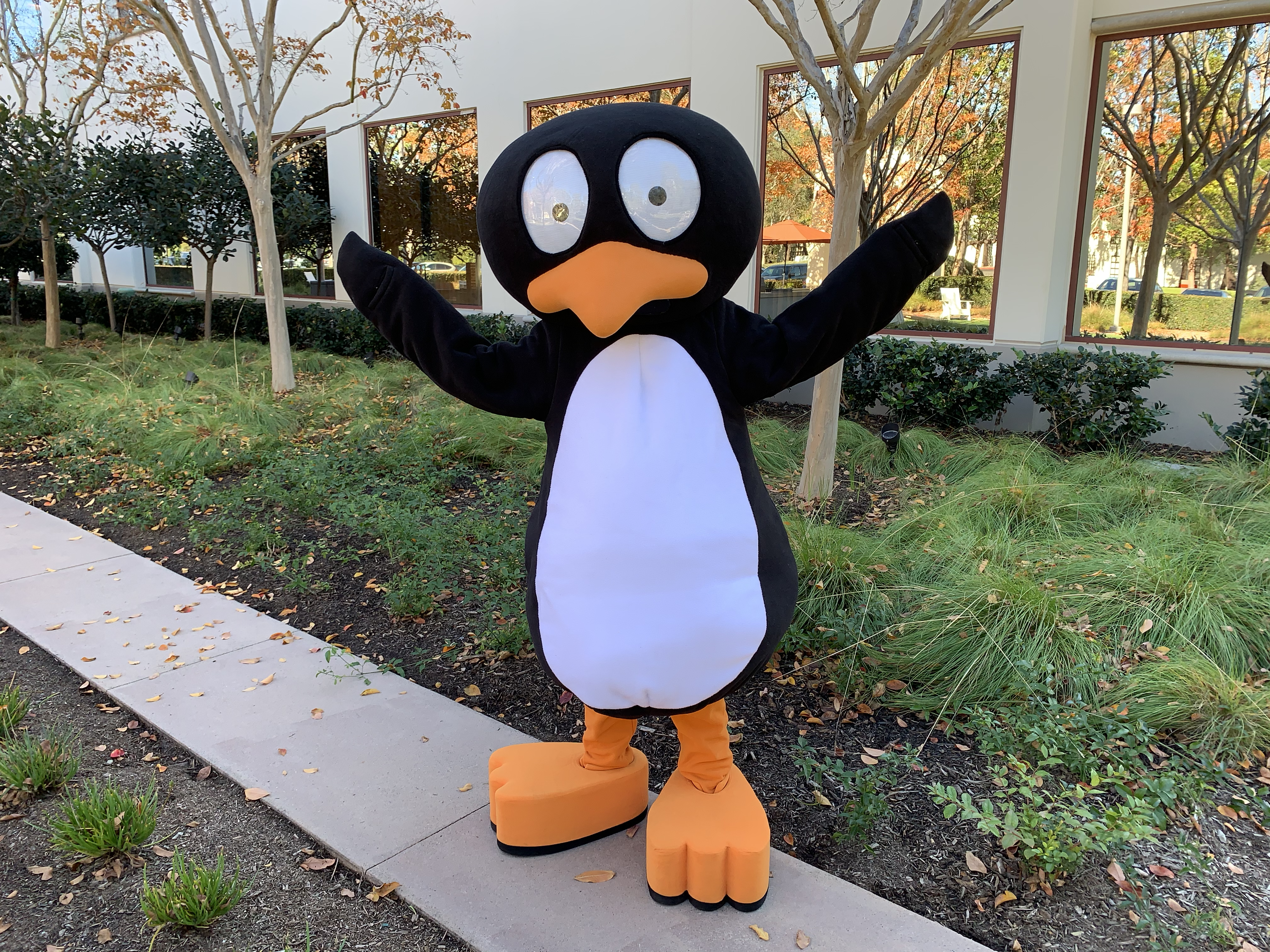Each month on the MIND blog, we share stories of how our organization, our partners, and educators across the country are advancing the mission to mathematically equip all students to solve the world’s most challenging problems. We also share resources for educators and students, and cover some of the exciting events we take part in across the country.
Welcome to the MIND Blog Rewind! Each month brings new changes, new challenges, and a step towards the new normal. As the school year heads into June and students start their summer break, MIND continues our mission to ensure all students are mathematically equipped to solve the world's most challenging problems.
As I looked back on everything that happened in May, one theme revealed itself to me: togetherness. Teamwork. Or my personal favorite—unity—because it also has meaning in mathematics. It means a quantity regarded as one. So much was uncontrollable, but what inspired me was the way teachers uplifted each other, parents banded together, and a community came together as one to inspire learning.
Part of our goal to inspire learning was the continuation of the Developing Our MathMINDs series. We continued our journey of growth with families, holding new conversations and giving out free math resources like storybooks.
Each week, MIND's Lead Mathematician and Product Director, Brandon Smith, and Content Development Manager, Nina Wu, are talking about the adjustments families are making to learning at home, and the opportunities this situation provides for changing our relationship with math.
In week four, we shared how to be a rockstar facilitator. Nina discussed ways to elevate learning at home, gave tips to deepen math conversations, and revealed action items that will help you on your way to being a better facilitator of learning for your student.
Week five of MathMINDs was centered around math activities to get you moving! Nina and Brandon discussed making math an active learning activity and leveraging the connection between the mind and the body. This included hopscotch, body angles, art, and even acting! All of these activities can be done at school, at home, or anywhere learning needs to happen.
How many words are in a typical math lesson? Week six of MathMINDs examined how language can be used in positive and unexpected ways to support mathematical learning. We shared strategies to connect math with story, and even included free math storybooks.
Week seven of MathMINDs celebrated the math all around us. Nina took us on a math walk and provided engaging examples of mathematical experiences that we can have along the way. This included making your own mathematical newspaper, math and magic (inspired by Jay Flores from Rockwell Automation), and more free math storybooks.
Stay tuned as this series continues. We've got more to share, discuss, and learn about together!

Teachers continued to encourage us through the teamwork and unity we saw in homes and schools across the country. From that inspiration, we shared what we saw work well in distance learning directly from educators. This includes supporting families, the importance of staying connected, and the positive ways that teachers have been supporting each other.

A new episode of Inside Our MIND podcast was released. Brian LeTendre, Director of Content and Communications, welcomed Dr. Megan Kuhfeld to the program to discuss COVID-related school closures and the effects of learning loss on students. Megan is a research scientist at the not-for-profit organization NWEA and her work covers a range of topics, including longitudinal growth modeling, achievement gaps, and summer learning loss.
We also discussed meeting the educational challenges of COVID-19 together. There are short- and long-term education challenges due to COVID-19. MIND is working with schools, families, communities, and our partners to address them. There are a lot of unanswered questions, but also some great reference points to help guide us as we develop answers together, like the importance of social emotional support, digital divides, the experience gap, and the COVID slide.
Math is for everyone! Edith Esparza, Education Engagement Specialist, led the women in mathematics day celebration on May 12th. Edith shared the importance of representation from undeserved and underrepresented communities in STEM-related fields. She also highlighted accomplished women from MIND Research Institute that inspire her.

Teachers have always been the champions that create JiJi culture in the classroom, but how does one celebrate at home? As schools celebrated what was accomplished and learned through the school year, we listened and learned from educators across the nation. Edith compiled ways that ST Math teachers are promoting a love for math and celebrating JiJi culture outside of the typical classroom environment. She also shared fun summer math activities and five ways teachers or parents can celebrate JiJi culture at home.
What makes an effective remote digital learning program? What should educators, administrators, and families be looking for? Andrew Coulson, Chief Data Science Officer at MIND, shared insight as to what makes good instructional programs or resources. Andrew's insights includes eight factors of what to look for and how ST Math has been proven to positively impact student achievement across all student subgroups and in all types of schools with recommended usage.

I remain so grateful and in awe of every parent, teacher, math coach, and administrator who has stepped up and risen to new educational challenges. This community reminds me of the many reasons that I wanted to be a teacher growing up. This community is special, fierce, and full of heart. This community does not give up in the face of hardship or hurdles.
Malala Yousafzai, an incredible human rights activist, the youngest Novel Prize laureate, and voice for female education said it best when she said, "Let us remember: one book, one pen, one child, and one teacher can change the world."
Thank you for being that change.
Comment